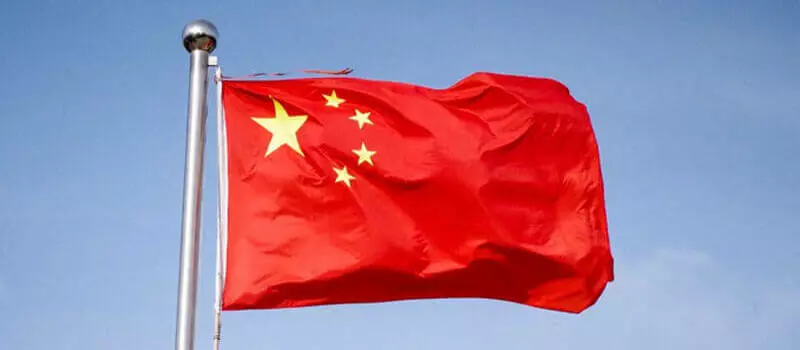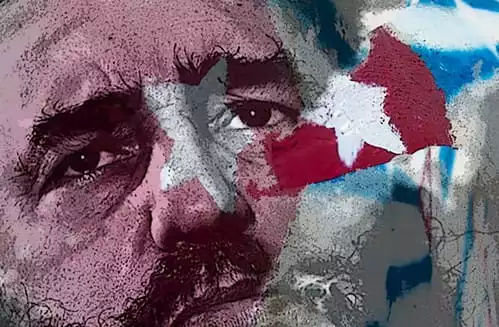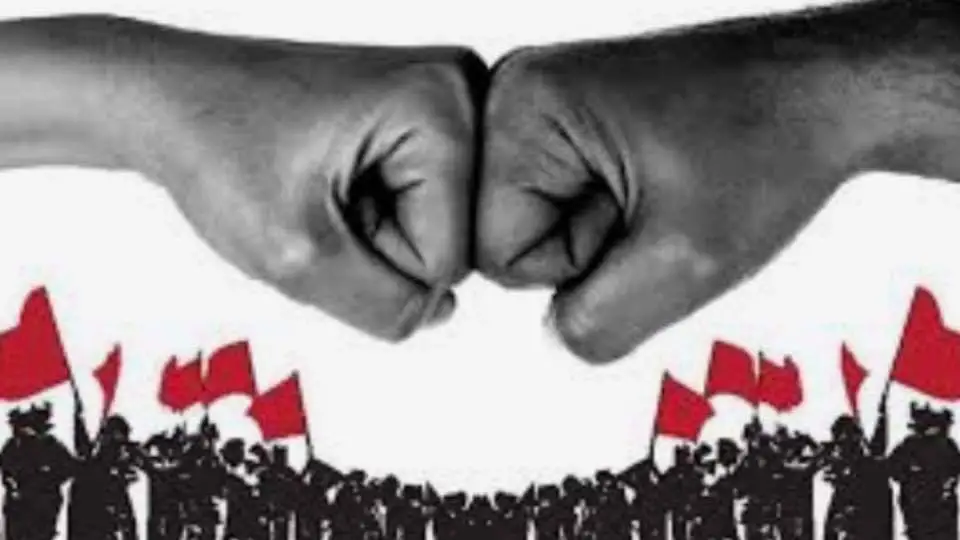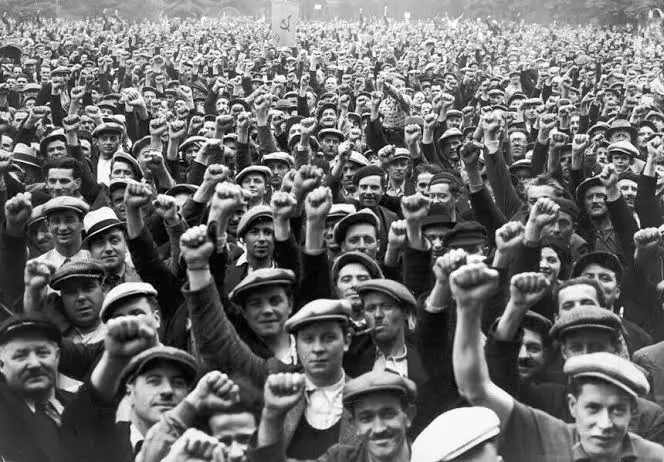… click here to read the previous part
Ideological work and class struggle
The struggle between bourgeois ideas, with all their effects, and the ideas of the proletariat, represented by Marxism, is a long-lasting struggle, which will exist intensely throughout the period of the primary stage of socialism in China (and even afterwards), a context where China still needs to promote its development in a hegemonically capitalist world. In the primary stage of socialism, even if within a determined scale, class struggle still exists, and it obviously exerts its influence in the ideological field. On the need to keep guard and initiative on the ideological front, pointing out that in socialism there is still class struggle, Jiang Zemin, in his speech commemorating the 78th anniversary of the Party's founding, stated:
“Class struggle is no longer the main contradiction in our country, but for a certain period it will continue to exist within a certain limit; moreover, under certain conditions, it may intensify. This kind of struggle expresses in a concentrated way the opposition of bourgeois liberalization to the four fundamental principles. The core of this struggle is still a problem of political power. This type of struggle is closely connected with the struggle between infiltration and anti-infiltration, subversion and countersubversion, peaceful evolution and fighting the peaceful evolution that exists between us and hostile forces.” [23]

The Communist Party of China's position on class struggle under socialism has always been very consistent and has not changed much since the beginning of the Reform and Opening-up policy. After criticizing the conception of class struggle that was in force during the period of the "cultural revolution", the Party started to maintain that the class struggle in socialism does not occupy the position of main contradiction, but that it still continues to exist within certain limits. However, some figures, already completely influenced by revisionism and imperialist ideas, allege that the Marxist concept of class struggle is "outdated", and when any mention is made of this basic concept of Marxism, they immediately claim that there is a danger of the resurgence of a new "cultural revolution". It is important to point out that there is a significant difference between saying that the "class struggle continues to exist within certain limits" and saying that "the class struggle does not exist" or that such a theory would be something "outdated". As Xi Jinping stated:
“We must adhere to the political position of Marxism. The political position of Marxism is primarily a class position, which implements class analysis. Some people say that this idea no longer corresponds to the present era, which is a mistaken point of view. When we say that the class struggle in our country is not the main contradiction, we are not saying that in our country the class struggle within certain limits no longer exists, or that in the international sphere it doesn't exist either. After the Reform and Opening, our Party's ideas on this problem have always been quite clear.” [24]
The definition, which recognizes that class struggle exists within certain limits, takes into account the concrete reality of China today, a reality where the various contradictions that exist can be resolved within the framework of the socialist system. The Communist Party of China, being the leading force of the state, has in its hands the political, economic and institutional instruments that enable it to adjust, modify and apply policies that help solve the problems and contradictions that exist between the various social classes, including the contradictions between the bourgeoisie and the proletariat. This does not mean that, also in this sphere of work, there are no errors and shortcomings, almost always produced by errors in the sphere of political and ideological work. Without a firm Marxist vision, the Party cannot correctly exercise its role as the vanguard of the working masses in China, nor can it firmly defend the interests of these classes.
The fundamental error of the Communist Party of China's view of class struggle in the period of the "cultural revolution" was precisely that it broadened the scope of class struggle, which in practice contributed to the Party's treating certain contradictions that existed within the people as if they were antagonistic contradictions. It was a view that did not correspond to the concrete situation of the Chinese society at the time; today the main mistake regarding the theory of class struggle is committed by those who deny its objective existence. The historical experience of the history of the construction of socialism at a world level teaches that class struggle continues to exist in socialism – even though it is not the main contradiction in socialist societies – and it is therefore wrong to deny or underestimate its action.
To deny the existence of class struggle in socialism is as serious an error as trying to artificially broaden its scope. The errors of the "cultural revolution" do not alter the fact that class struggle is an objective reality, and that it continues to exist in the primary stage of socialism. In the Chinese case, given the expansion of capitalist relations of production, it is obvious that class contradictions, including the contradiction between the bourgeoisie and the proletariat, can intensify again. Without recognizing the existence of class struggle, it is impossible to adopt measures to resolve the various social contradictions that exist in Chinese society, which in the medium and long term would result in the amplification of social contradictions, causing contradictions that are currently non-antagonistic in character to quickly become antagonistic contradictions.
Without Marxism and the October Revolution there would be no "Chinese miracle": a short critique of certain conceptions of the "China's rise"
The success achieved by the CCP in leading the Chinese nation along the path of socialism has shown the world that Marxist theory is both vital and scientific. But in view of the undeniable successes achieved by the Party, and given the intense political and ideological struggle going on, it is to some extent inevitable that certain figures who follow the Chinese development process from abroad might try to explain it by turning a blind eye to the most important and essential elements that define such process. Quite popular are the notion that China's development results from a "developmentalist" state in the style of Taiwan, Singapore, or South Korea, or a "civilizational state", emphasizing here the "civilizational superiority" of the Chinese nation. To give an example of the confusions, Martin Jacques, an author who has played a very important role in investigating the Chinese development process, and who openly opposes attempts to launch a new cold war against the Asian country, stressed in a Global Times article that "it is impossible to understand China in terms of traditional Marxism", adding that the CCP is "deeply influenced by Confucianism" and that the best way to understand it would be to describe it as a "hybrid between Confucianism and Marxism”. The author also makes a point of highlighting the fact that the CCP is quite different from the former Communist Party of the Soviet Union and that the two have "very little in common". [25]
We recognize that in all these statements – except for the claim that the Communist Party of China and the Communist Party of the Soviet Union “have very little in common" - there is an element of truth; however, we believe that the author does not address the crux of the problem, which is precisely to analyse how the Sinicization of Marxism is the main element that explains the success and rise of China, and that the ideological system of socialism with Chinese characteristics is not an eclectic mix between two philosophies with completely different bases and goals (Marxism and Confucianism). Confucianism, of course, is an important pillar of traditional Chinese culture, and obviously the Communist Party of China recognizes and incorporates its progressive elements. However, it cannot be denied that throughout its century-old history, the Chinese progressive and revolutionary movement, of which the Communist Party of China is a direct product, has always been very critical of Confucianism, and all this long before the "great proletarian cultural revolution" emerged on the scene in the late 1960s. Martin Jacques' statement that the Communist Party of China is "rooted and deeply influenced by Confucianism" is a half-truth turned into an absolute truth, for it denies another basic fact that needs to be taken into consideration – namely that the Communist Party of China was born amidst an intense ideological and political struggle against Confucian ideology and all that it represented and still represents in the developmental history of the Chinese nation. That there are Chinese authors and personalities – including within the Party – who advocate a "new Confucianism", or who try to explain Chinese success within the framework of "Confucianism", is another problem, very much related to the ideological confusion generated by years of a relatively uncontrolled development of bourgeois ideas, something we have already discussed in this article.

In fact, the problem of the relationship between traditional Chinese culture and Marxism in China is a topic that deserves a separate article, such is the complexity of the subject. However, this is not to say that for the Communist Party of China, Confucianism and Marxism are two philosophies on the same footing, or, in Martin Jacques' own words, a "hybrid between Confucianism and Marxism”. As Hou Weimin, a member of the Institute of Marxism of the Chinese Academy of Social Scientists, put it:
“Since the Reformation and the Opening-up, there have been two types of anti-Marxist thinking. One is the ideological tendency to promote the restoration of feudalism; cultural conservatism and neo-Confucianism belong to this category. This trend of thought is characterized by advocating the ‘Confucianization of China’ and ‘Confucianization of the Communist Party’ under the banner of carrying forward traditional culture by establishing ‘Confucian colleges’ in which Confucian scholars familiar with Confucian classics rule China. Supported by some people abroad, this thinking prevailed for some time. However, its absurdity is obvious if a more proper investigation is made. Its main points have the smell of feudal zombies, so it is hard for it to get a response from the masses. The other thought is the tendency to promote the restoration of capitalism, called bourgeois liberalization by Deng Xiaoping.” [26]
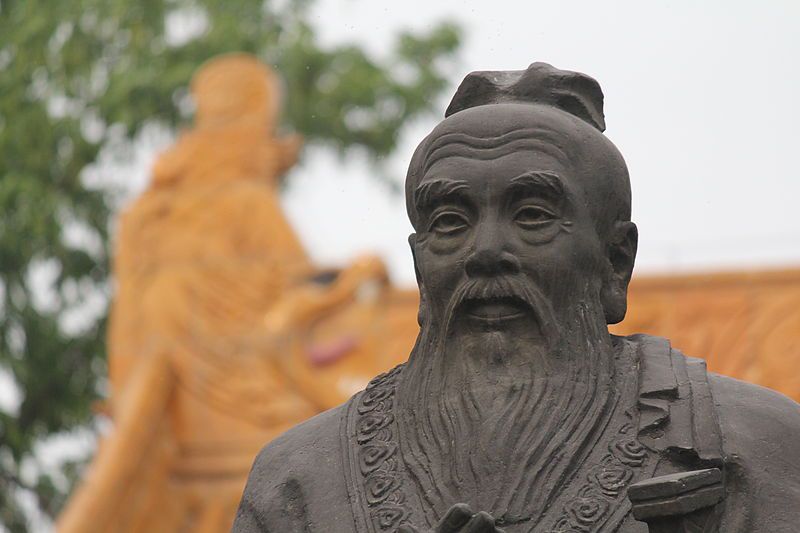
About the "few similarities" between the Communist Party of China and the former Communist Party of Soviet Union, it is evident that the way Martin Jacques throws such information into his article misleads the reader into confusion. Which Communist Party of the Soviet Union is he referring to? The Party of Lenin and Stalin, or the Party of Khrushchev, Brezhnev and Gorbachev? Superficial statements such as those made by the author open much room for confusion and misinterpretation regarding the history of the Communist Party of China and its evolution over the years. It is necessary to point out that between the CCP and the former CPSU there is the difference that the former was able to integrate Marxism to the Chinese reality, avoiding committing the same mistakes that the Soviet Party committed in the past due to its abandonment of Marxist theory; the latter, on the other hand, gradually distanced itself from Marxism and capitulated before the ideological offensive promoted by the capitalist countries. However, it is undeniable that the Communist Party of China learned many things from the Soviet experience, so in fact there were "great similarities" between both parties, and that the Soviet experience was, from the beginning, a source of inspiration and study for the Chinese communists. As Zhou Xincheng noted:
“Initially, we had no experience in how to build socialism. We could only learn from the Soviet Union, which had decades of experience in socialist construction. The basic experience of socialist construction in the Soviet Union was to be studied, including its political adherence to the Communist Party leadership and the dictatorship of the proletariat; economic adherence to the system of public ownership of the means of material production, distribution according to labour, elimination of exploitation and elimination of polarization; ideological adherence to Marxism as a guide, etc. This reflects the basic principles of scientific socialism, its common law, possessing universal value. Therefore, we have always regarded our socialist cause as a continuation of the October Revolution.” [27]
Even today many elements in the Chinese political system bear great similarities to the model that was gradually established in the Soviet Union in the late 1920s and early 1930s. The political model that establishes the Communist Party's direction over the activities of the state and society – a system that today even some bourgeois theorists sympathetic to China tend to defend – is a direct influence of the Soviet-type political system, even if between them there are some differences (e.g. in the Chinese case there is at the same time a system of political consultation that allows the existence of other parties). Although perhaps this is not his intention, in practice Martin Jacques ends up establishing an opposition between two historical phenomena umbilically connected – the Russian and Chinese revolutions – diminishing the position of Marxism-Leninism and concealing the direct link that the process of building socialism with Chinese characteristics has with the struggle of the international proletariat and with the Russian revolution itself, in the name of the idea that the Communist Party of China "is different from all the other parties in the world”.
Still on the relationship between socialism with Chinese characteristics and Soviet socialism, it is interesting to note that Xi Jinping, in analysing the various stages of the development of the history of socialist thought and movement, divides it into six stages, citing precisely Lenin's experience and his leadership in the October Revolution as an integral part of these stages, as well as the gradual formation of the Soviet system already in the Stalin period (respectively, the third and fourth stage of the development of the history of socialism). In other words, Xi Jinping highlights as an integral part of the development of socialist thought – in which, obviously, socialism with Chinese characteristics is included – the experience of the construction of socialism in Russia, from the victory of the October Revolution to the formation of the Soviet system with the foundation and construction of socialism in the Soviet Union, an experience led by the Communist Party of the Soviet Union.
References:
[23] Jiang Zemin 江泽民. "Jiāngzémín zài qìngzhù jiàndǎng qishi zhōunián dàhuì shàng de jiǎnghuà 江泽民在庆祝建党70周年大会上的讲话 [Speech at the celebration of the 70th anniversary of the founding of the party]," 1991. Accessed at: http://www.qunzh.com/pub/jsqzw/xxzt/jd95zn/zyls/201606/t20160601_20990.html
[24] Speech by Xi Jinping at the School of the Central Committee of the Communist Party of China. February 17, 2014. Quoted in Zhou Xincheng 周新城,"Jianchi jiqiao jiben yuanli fenxi shehui wenti坚持运用马克思主义基本原理分析社会经济问题 [Adhere in using the principles of Marxism in investigating economic and social problems]." Jingji ribao chuban she 经济日报出版社, 2016, pg. 228.
[25] Martin Jacques. Why there has been an overwhelming failure to understand CPC in West, Global Times, April 6, 2021. Accessed at: https://www.globaltimes.cn/page/202104/1220314.shtml
[26] Hou Weimin . "Pipan yu chuangxin- Zhou xincheng jiaoshou jingji sixiang sumiao -- [Critique and Innovation: an outline of Professor Zhou Xincheng's economic thought]"Guanli xue kan , 2014.
[27] Zhou Xincheng . "Jianguo qishi nian shi qingzhu shehui zhuyi lishi fazhan, jinian zhonghua renmin gongheguo chengli qishi zhounián 70, 70. Accessed at: http://www.kunlunce.com/llyj/fl1/2019-05-17/133451.html
